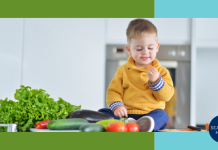Last month, my family lost our sixteen-and-a-half year old Boston Terrier, Kali. She had been in decline for a long time, but our lives had been so busy that it almost felt as if she’d gone from being a snuggly, sassy pup who would do just about anything for a kernel of popcorn, to a confused, quiet shadow overnight.
I am no stranger to grief, but there is something distinctly different about having to make the decision about when it is time to let go. Kali was my husband’s baby, but I quickly became obsessed with her when we started dating over a decade ago. Our house is full of Boston Terrier artwork and knick-knacks – an obsession we are not, apparently, alone in. A recent study noted that 97% of pet owners in the US consider their pets to be a part of their family. What’s more, half of those owners say that their pets are as much a part of their family as human members. I’ll admit that I have clung to this last statistic as a way to help me feel less crazy about how losing our dog has made me feel.
As a mother, I am used to just pushing through.
This was never more apparent to me as it was the night we decided to put our dog down. Waiting for my parents to come and stay with our kids, I was going through the motions. I made my family dinner as tears streamed down my face, ceaseless and silent. I’m not proud of my propensity to minimize my own needs. We all know we are supposed to put our own oxygen mask on first, but why is it so hard to do?
Anybody who has put a pet to sleep knows how brutal, and also how beautiful, the process is.
It really is a gift to be there with your pet in those last moments. Kali’s were peaceful and gentle. There was nothing to do but sit in that room and allow myself to really feel. Instead of leaving the vet’s office and getting back to the business of being perpetually busy, I was able to take some of this gentleness home with me. For a full twenty-four hours I let myself do absolutely nothing “productive’, short of keeping my children happy and fed and taking them where they needed to be.
We tend to minimize pet loss and the associated grief as a society, but it felt absolutely impossible to underestimate the enormity of Kali’s loss in my own home. Although I had several wonderful friends and family members validate my feelings – some of whom even sent cards and gifts – there simply isn’t the same societal support or outreach when dealing with pet loss. Our entire routine was disrupted and our home felt much quieter. There was a definite void in my universe that could not be ignored.
So, I snuggled with my toddler and kept Bluey on repeat without an ounce of the usual guilt. I avoided social media for an entire week and only responded to the texts I felt I had the energy to deal with. And actually, I found that I took care of myself in a way that I haven’t in a long time. I cried in sporadic bursts, and most importantly, I let my children see those tears.
Letting my children see me as more human was an unexpected bonus to this entire situation.
My oldest daughter is in high school. She loved Kali as deeply as my husband and I did, but was surprisingly stoic when we told her that it was time to put the dog to sleep. I expected big emotions, especially when we arrived home carrying the empty blanket that she had lovingly wrapped the dog in earlier in the day. She cracked a few jokes with me and gave me a tentative hug. This was the extent of her response. Suddenly, it dawned on me. I so often swallow my own emotions and smooth over difficult situations that I am in fact modeling unhealthy behavior. I wasn’t showing my eldest daughter – or any of my children – that it was okay, appropriate even, to fall apart sometimes.
The next day, I gently told her that she didn’t have to share her every emotion with me, but that it was okay to acknowledge the feelings of sadness Kali’s loss brought out in us all. I shared how I often push difficult emotions down, only to have them show up somewhere else at an inopportune moment. Our conversation – particularly, my opening up and being vulnerable – encouraged her to start to grieve in her own way. My other two children are much younger, and had more questions about logistics and when we are going to get our next puppy (spoiler alert: not any time soon) than what Kali’s loss really means. Fellow Seacoast Moms writer Lindsey wrote this post with wonderful tips of how to deal with pet loss as a parent of younger kids.










